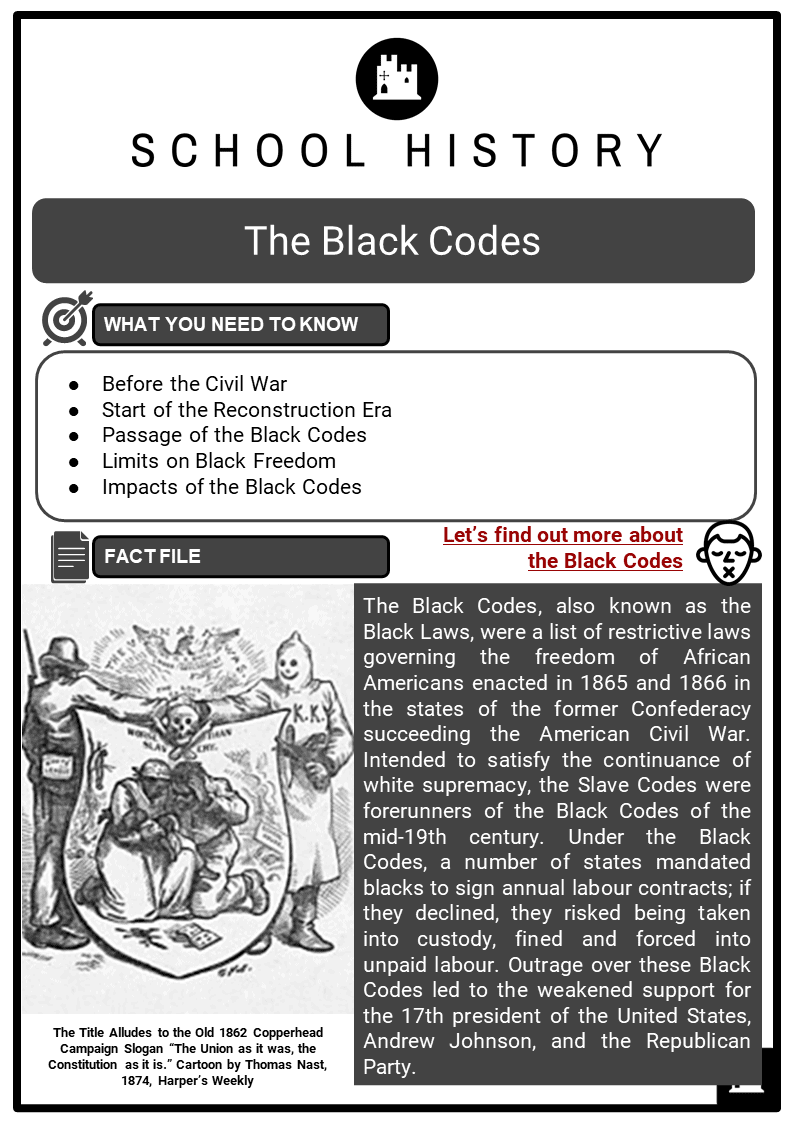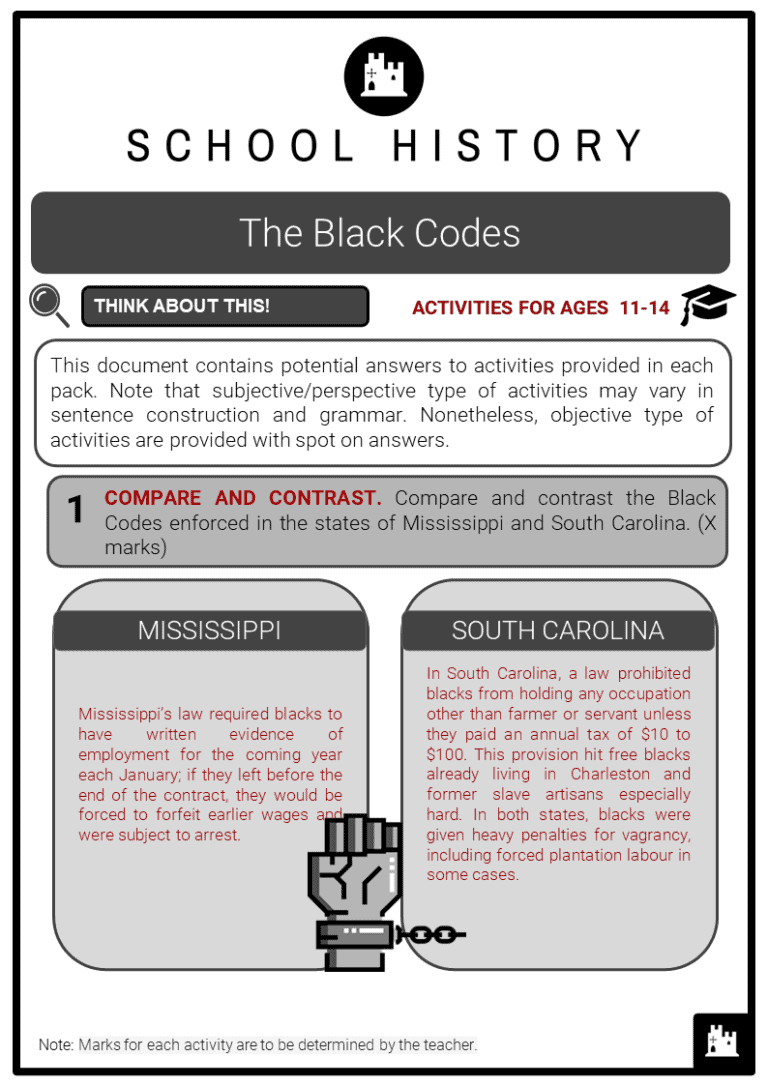Black Codes Drawing
Black Codes Drawing - And in no part of the. It said the shows were reportedly stored on usbs that were floated over the border by. South carolina and mississippi passed laws known as black codes to regulate black behavior and impose social and economic control. The laws were intended to restrict the rights and freedoms of slaves who were freed in the wake of the civil war. Web under the black codes, all black people, convicts or not, were subject to curfews set by their local governments. These excerpts of historic documents are included as background to the 360° vignette in the black codes.rather than depicting specific individuals, the characters in the 360° scene are composites based on people, issues, publications and events relevant to the theme of this module: Web the black codes, sometimes called the black laws, were laws which governed the conduct of african americans (both free and freedmen).in 1832, james kent wrote that in most of the united states, there is a distinction in respect to political privileges, between free white persons and free colored persons of african blood; Web the black codes were a series of laws passed throughout the south in the wake of emancipation. Directly or indirectly impacted by jim crow rule, these men made works that are not simply illustrations of history but that are also hidden transcripts. With the war drawing to an end, african americans throughout the north and the south, whether through federal legislation or self emancipation, were poised to finally experience the benefits of freedom and citizenship. Web the black codes enacted in late 1865 and early 1866 were devised to keep freed southern blacks legally bound to white plantations. Web black codes were laws enacted by the legislatures of former confederate states in 1865 and 1866, in response to the passage of the 13th amendment, which abolished slavery. South carolina and mississippi passed laws known as black codes to regulate black behavior and impose social and economic control. The thirteenth amendment to the united states constitution. Web black codes were restrictive laws designed to limit the freedom of african americans and ensure their availability as a cheap labor force after slavery was abolished during the civil war. Black codes art collects and frames these laws as a way to never forget period in history as well as to honor the struggles and perseverance of freed slaves. Intended to satisfy the continuance of white supremacy, the slave codes were forerunners of the black codes of the mid. Web drawing of uniforms of the american revolution; Black farm workers were required to carry passes from their employers, and meetings black people took part in were overseen by local officials. Web seventh and eighth graders in malvern, pa., impersonating their teachers posted disparaging, lewd, racist and homophobic videos in the first known mass attack of its kind in the u.s. South carolina and mississippi passed laws known as black codes to regulate black behavior and impose social and economic control. Web black codes were restrictive laws designed to limit the freedom of african americans and ensure their availability as a cheap labor force after slavery was abolished during the civil war. Web a south korean outlet said that north korea. Specifically, they wondered how they could keep blacks continuing to work the plantation system after slavery ended. Web shop for black codes wall art from the world's greatest living artists and iconic brands. Royal flag by thornton dial, pressure from the burn by lonnie holley, and april nineteenth (the number) by ronald lockett. The laws were intended to restrict the. Web browse 13,784 black codes photos and images available, or search for segregation to find more great photos and pictures. Choose your favorite black codes designs and purchase them as wall art, home decor, phone cases, tote bags, and more! Black codes art collects and frames these laws as a way to never forget period in history as well as. Specifically, they wondered how they could keep blacks continuing to work the plantation system after slavery ended. With the war drawing to an end, african americans throughout the north and the south, whether through federal legislation or self emancipation, were poised to finally experience the benefits of freedom and citizenship. Black farm workers were required to carry passes from their. Specifically, they wondered how they could keep blacks continuing to work the plantation system after slavery ended. Web what can objects tell us about the post civil war experience of african americans? Web shop for black codes wall art from the world's greatest living artists and iconic brands. The laws were intended to restrict the rights and freedoms of slaves. Web browse 13,784 black codes photos and images available, or search for segregation to find more great photos and pictures. Web black codes were restrictive laws designed to limit the freedom of african americans and ensure their availability as a cheap labor force after slavery was abolished during the civil war. The thirteenth amendment to the united states constitution. Web. Web what can objects tell us about the post civil war experience of african americans? Effects of the fugitive slave law lithograph, 1850; Directly or indirectly impacted by jim crow rule, these men made works that are not simply illustrations of history but that are also hidden transcripts. The greatest fear of southern cotton growers and their northern manufacturing partners. Web the black codes were a series of laws passed throughout the south in the wake of emancipation. These excerpts of historic documents are included as background to the 360° vignette in the black codes.rather than depicting specific individuals, the characters in the 360° scene are composites based on people, issues, publications and events relevant to the theme of this. Thornton dial, lonnie holley, ronald lockett and joe minter. Specifically, they wondered how they could keep blacks continuing to work the plantation system after slavery ended. These excerpts of historic documents are included as background to the 360° vignette in the black codes.rather than depicting specific individuals, the characters in the 360° scene are composites based on people, issues, publications. Web black codes were laws enacted by the legislatures of former confederate states in 1865 and 1866, in response to the passage of the 13th amendment, which abolished slavery. By putting both into one legal category, whites divided the population along racial lines, not along. Choose your favorite black codes designs and purchase them as wall art, home decor, phone. Web the black codes were a series of laws passed throughout the south in the wake of emancipation. Web browse 13,784 black codes photos and images available, or search for segregation to find more great photos and pictures. The codes were enacted in 1865 and 1866. South carolina and mississippi passed laws known as black codes to regulate black behavior and impose social and economic control. The greatest fear of southern cotton growers and their northern manufacturing partners was that with the end of slavery they would lose access to the cheap (or free) and plentiful labor that had made cotton a cash. Black farm workers were required to carry passes from their employers, and meetings black people took part in were overseen by local officials. Web now, three works recently acquired by mia are featured in the exhibition “black codes: Web as the civil war came to a close, southern states began to pass a series of discriminatory state laws collectively known as black codes.while the laws varied in both content and severity from state to state—some laws actually granted freed people the right to marry or testify in court— these codes were designed to maintain the social and economic. Black codes art collects and frames these laws as a way to never forget period in history as well as to honor the struggles and perseverance of freed slaves. They were meant to help whites regain the control that they had lost over the african american population when slavery was ended. Web black codes were laws enacted by the legislatures of former confederate states in 1865 and 1866, in response to the passage of the 13th amendment, which abolished slavery. Web under the black codes, all black people, convicts or not, were subject to curfews set by their local governments. And in no part of the. Directly or indirectly impacted by jim crow rule, these men made works that are not simply illustrations of history but that are also hidden transcripts. Web black codes were restrictive laws designed to limit the freedom of african americans and ensure their availability as a cheap labor force after slavery was abolished during the civil war. Whether you're passionate about street art, urban styles, or cultural motifs, black color offers a collection that truly speaks to the heart of black creativity.PPT The Reconstruction Period PowerPoint Presentation, free download
The black codes
Black Codes History 156
Black Codes Pictures
The Black Codes and Why They Matter Today
Black Codes History 156
PPT Chapter 12 Reconstruction American History PowerPoint
The Black Codes Facts, Worksheets, Civil War & Reconstruction Era
The Black Codes were laws in the United States after the Civil War with
Black Codes History 156
The Thirteenth Amendment To The United States Constitution.
Although Often Professing To Respect The Equality And Civil Rights Of The Newly Emancipated, In Reality Most Of The Black Codes Were Specifically Designed To Curtail The Economic, Political, And Social Freedom Of African Americans And, Through A Combination.
Effects Of The Fugitive Slave Law Lithograph, 1850;
The Laws Were Intended To Restrict The Rights And Freedoms Of Slaves Who Were Freed In The Wake Of The Civil War.
Related Post:
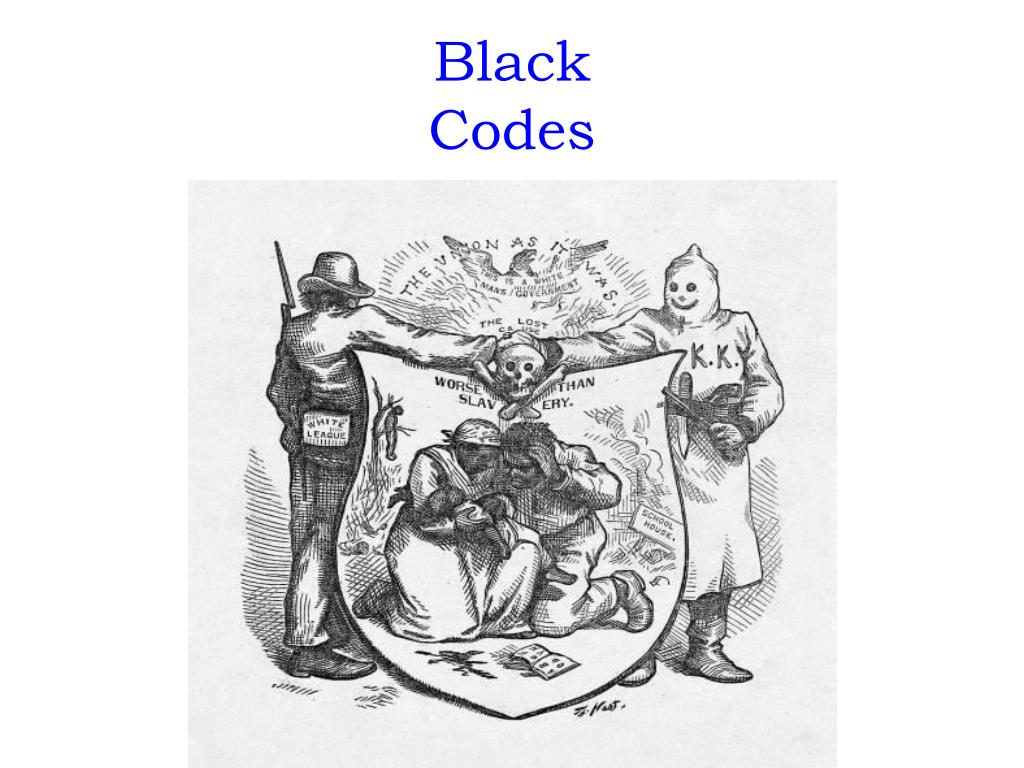
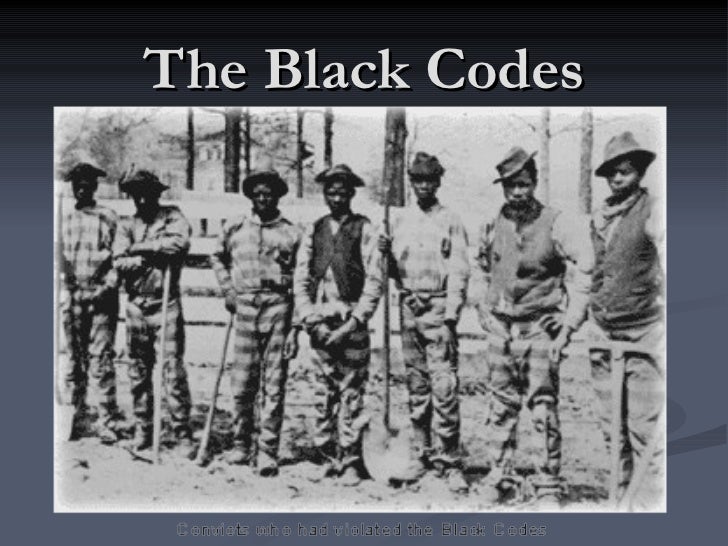

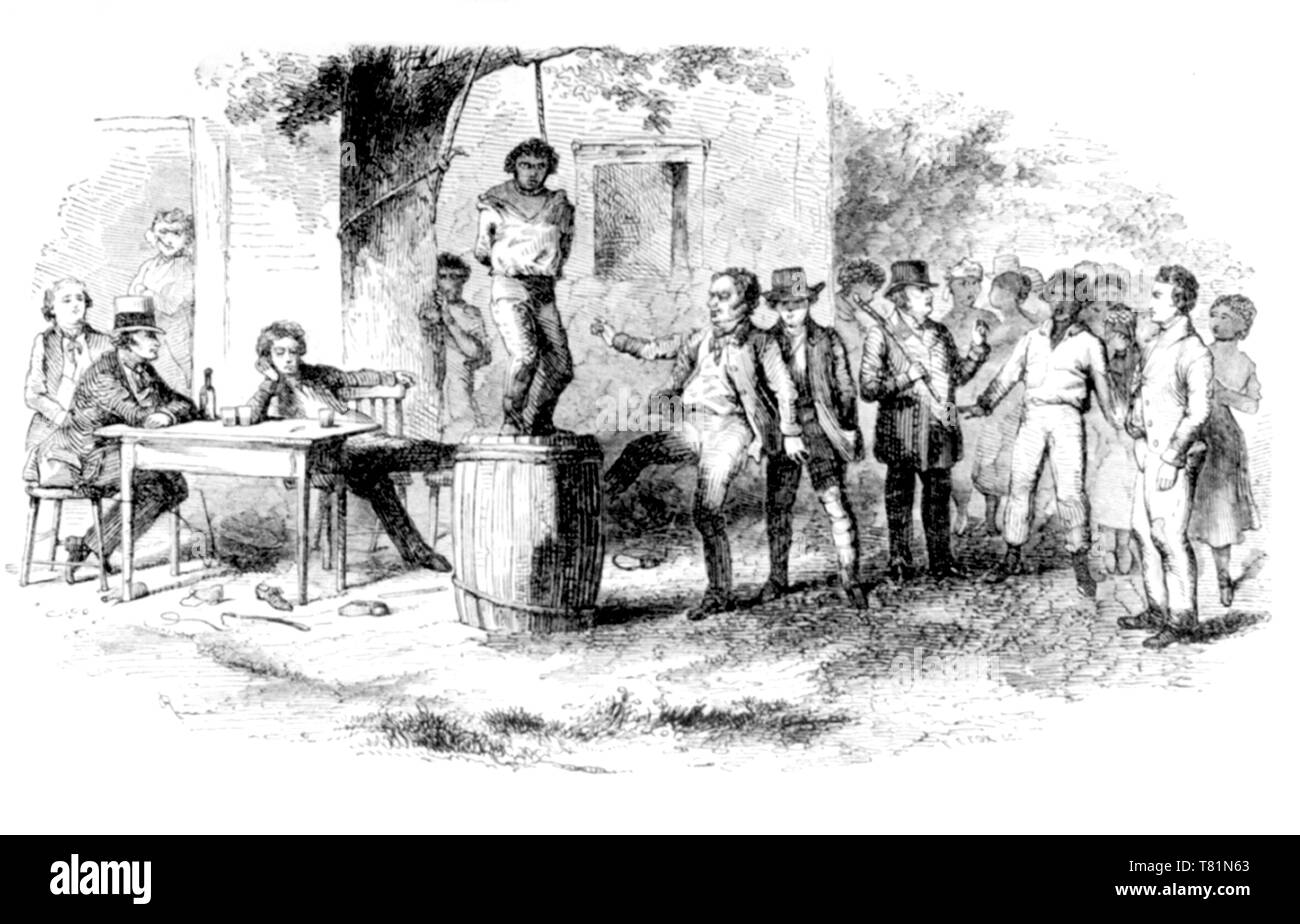
/BlackCodes-5c6aeaf9c9e77c00013b3c06.jpg)


